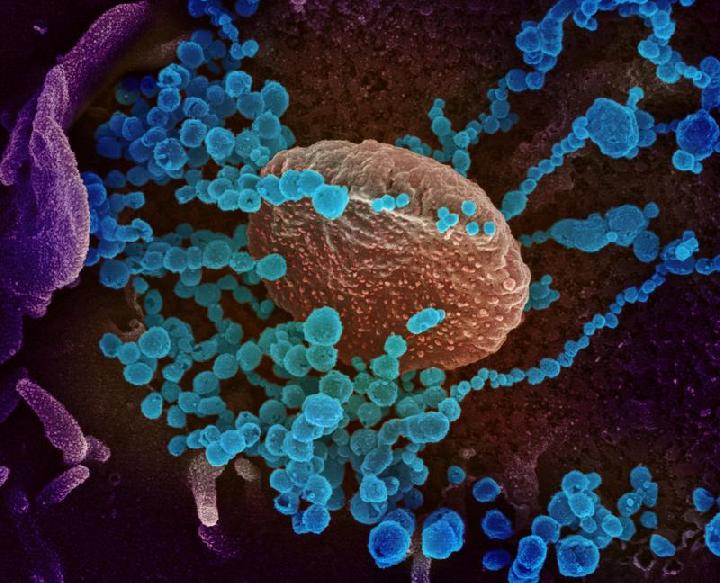Study: New Coronavirus Spread Swiftly Around World from Late 2019
Translator
Editor
7 May 2020 01:46 WIB

TEMPO.CO, Jakarta - A genetic study of samples from more than 7,500 people infected with COVID-19 suggests the new coronavirus spread quickly around the world after it emerged in China sometime between October and December last year, scientists said on Wednesday, May 6.
Scientists at University College London’s Genetics Institute found almost 200 recurrent genetic mutations of the new coronavirus - SARS-CoV-2 - which the UCL researchers said showed how it is adapting to its human hosts as it spreads.
“Phylogenetic estimates support that the COVID-2 pandemic started sometime around Oct. 6, 2019 to Dec. 11, 2019, which corresponds to the time of the host jump into humans,” the research team, co-led by Francois Balloux, wrote in a study published in the journal Infection, Genetics and Evolution.
Balloux said the analysis also found that the virus was and is mutating, as normally happens with viruses, and that a large proportion of the global genetic diversity of the virus causing COVID-19 was found in all of the hardest-hit countries.
That suggests SARS-CoV-2 was being transmitted extensively around the world from early on in the epidemic, he said.
“All viruses naturally mutate. Mutations in themselves are not a bad thing and there is nothing to suggest SARS-CoV-2 is mutating faster or slower than expected,” he said. “So far, we cannot say whether SARS-CoV-2 is becoming more or less lethal and contagious.”
In a second study also published on Wednesday, scientists at Britain’s University of Glasgow who also analysed SARS-CoV-2 virus samples said their findings showed that previous work suggesting there were two different strains was inaccurate.
JUST ONE VIRUS TYPE CIRCULATING
A preliminary study by Chinese scientists in March had suggested there may have been two strains of the new coronavirus causing infections there, with more of them more “aggressive” than the other.
But, publishing their analysis in the journal Virus Evolution, the Glasgow team said only one type of the virus was circulating.
More than 3.71 million people have been reported to be infected by the novel coronavirus globally and 258,186 have died, according to a Reuters tally.
Cases have been reported in more than 210 countries and territories since they were first identified in China in December 2019.
The genetic studies offer “fascinating” insights into the evolution of the virus, and emphasise that it is “a moving target with an unknown evolutionary destination”, said Jonathan Stoye, head of the division of virology at Britain’s Francis Crick Institute.
“All the evidence is entirely consistent with an origin towards the end of last year, and there’s no reason to question that in any way,” Stoye said.
A study by French scientists published earlier this week found a man in France was infected with COVID-19 as early as Dec. 27, nearly a month before authorities there confirmed the first cases.
The World Health Organization said the French case was “not surprising” and urged countries to investigate any other early suspicious cases.
Balloux’s team screened the genomes of more than 7,500 viruses from infected patients around the world. Their results add to a growing body of evidence that SARS-CoV-2 viruses share a common ancestor from late 2019, suggesting this was when the virus jumped from a previous animal host into people.
The UCL researchers also found almost 200 small genetic changes, or mutations, in the coronavirus genomes they analysed - findings Balloux said offered helpful clues for researchers seeking to develop drugs and vaccines.
REUTERS























